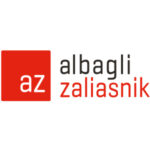

The new Economic Crimes Law not only reconfigured the modifications of liability and incorporated a special system for determining punishment and alternative punishments in light of economic crime, but also added new criminal figures, whose limits and practical application have filled the business world with resentment.
One of them is that contained in article 134 bis of the Law on Public Limited Companies (LSA) which penalizes the illegality of abusive agreements that may occur in the boards of directors.
It is important to note that this crime, in its typical structure, punishes those who, taking advantage of their majority position on the board of directors of a corporation, adopt an abusive agreement to benefit or financially benefit another, to the detriment of the other partners and without the agreement bringing benefit to the company.
Next, we proceed to limit its scope of application to provide the following considerations:
First, the criminal type incorporated into article 134 bis was drawn up based on the text contained in article 291 of the Spanish Penal Code. Thus, the consideration of the latter, when resolving problems of interpretation and application of our criminal type, is essential for our dogmatics and jurisprudence.
In this sense, and to delimit the typical scope of the Chilean crime, it is necessary to keep in mind that, in light of Spanish dogma, the criminal type of abusive agreement has quite specific characteristics that we must consider.
As a reference, the offence only penalises, without prejudice to the other typical elements of the offence, those agreements that do not benefit society or do not respond to a rational need of the latter. In other words, it does not penalise the adoption of agreements that, even if they harm minority shareholders, benefit or respond to a rational need of society.
It is therefore essential for the configuration of the crime to have in view the “social balance” associated with the adopted agreement. For these purposes, the mere occurrence of damage to the minority is not sufficient.
Thus, agreements that are beneficial to society, despite harming minority partners, and neutral agreements, which respond to a rational need of society, even when harming minority partners, would be atypical.
Secondly, it must be considered that the benefit, harm or specific effect that an agreement has on the social interest must be determined in light of criteria of economic rationality that exceed the sole consideration of the immediate effects associated with a particular agreement.
Let us consider an agreement that initially generates an economic advantage for society, but which, in the long term, is detrimental to its interests. In this case, this initial advantage is completely irrelevant in terms of the definition of the criminal type of abusive agreement. The conduct may also be criminal. And the same applies in reverse.
Finally, we must mention that the typical conduct sanctioned must be limited to the adoption of those agreements that are suitable to cause harm to the other partners. In other words, if a certain agreement does not have the possibility of causing harm to the other partners, then it cannot be sanctioned as a result of the crime of abusive agreement.
However, these clarifications are merely indicative. There are other clarifications that must be considered in order to delimit the typical scope of application of Article 134 bis.
The Chilean criminal type, a mirror of the Spanish one, cannot be applied in a way that goes beyond its superficial meaning or contradicts its origin. There is already a guide, there are already substantive delimitations that can guide the application of this new crime in our law. And this cannot be ignored by our doctrine and jurisprudence.
To discuss these issues, you can contact our Criminal Litigation team:
Gabriel Zaliasnik | Partner | gzaliasnik@az.cl
Loreto Hoyos | Director of the Criminal Group | lhoyos@az.cl
David Segall | Senior Associate | dsegall@az.cl




